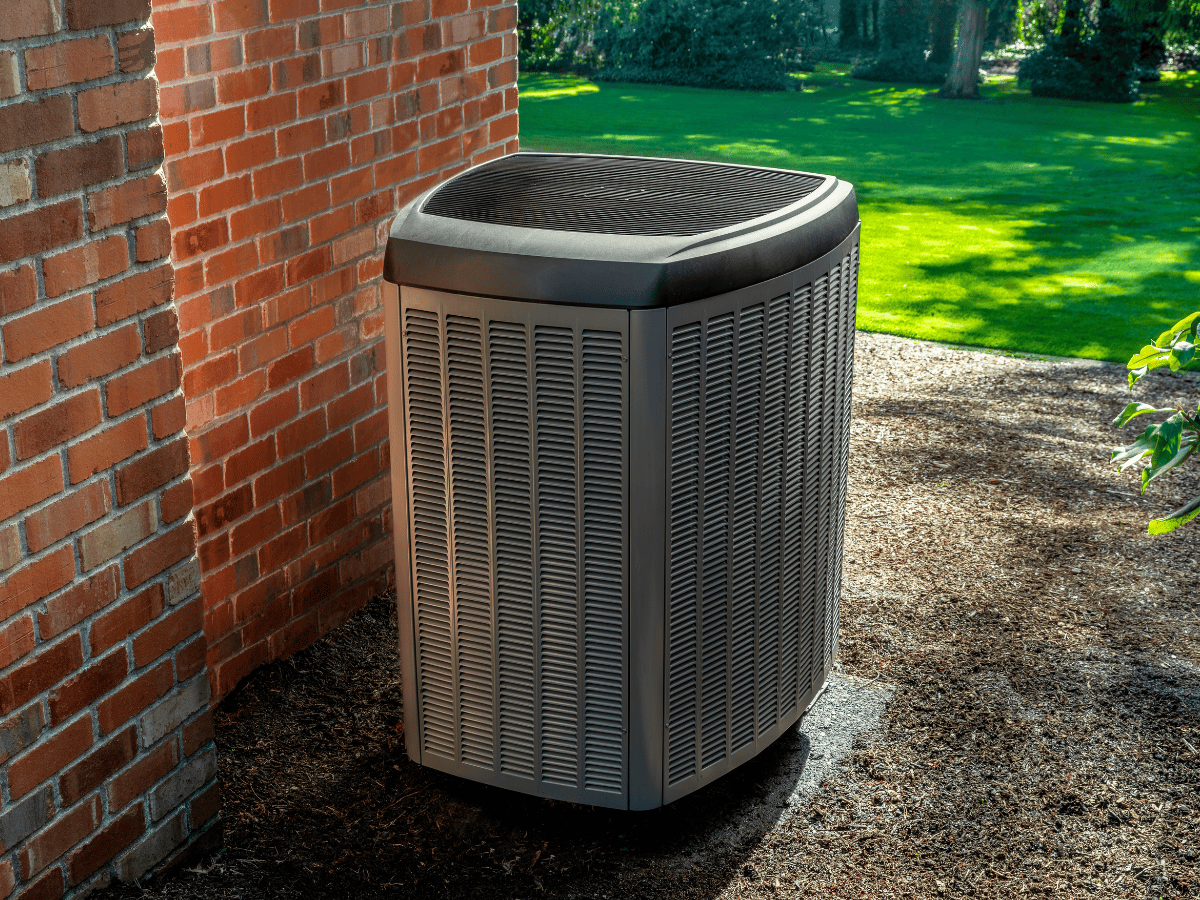Finding the right cooling solution is important when homeowners want to ensure a comfortable living environment.
Two of the most notable cooling solutions are the air conditioner-heat pump pair. Deciding between the two can be difficult, though. Both options provide distinct advantages and are used to meet different needs.
One way to choose between them is understanding how each can help. In this article, we’ve covered how each system works and a few advantages and disadvantages to help guide the decision.
Once you’ve made a choice on a heat pump vs. AC, contact our team at Hurliman Heating & Air Conditioning for help installing the system.
How Air Conditioners Work
Air conditioners are known for their ability to cool, even if each type of system does it differently, whether it’s mini splits or central air.
An AC mainly works by drawing in hot air and absorbing the heat from it. This is usually done via the liquid refrigerant that runs through a specially-made line. That refrigerant carries the heat outside the home, where it gets released, and the cycle repeats until the AC is turned off.
Many important parts help the cooling process, like the refrigerant line’s compressor and the system’s blower. When they work together efficiently, the AC circulates the newly cooled air through your home while removing the heat.
How Heat Pumps Work
On the other hand, heat pumps are better known for being able to provide cooling along with heat for your home.
These systems work by transferring heat from one area to another with the use of refrigerant, which is one similarity in the air conditioner-heat pump comparison. Unlike air conditioners though, which just cool the air, heat pumps can be reversed so that the refrigerant moves in the opposite direction to generate warmth.
When the system cools, the heat pump takes heat from the air inside the home and releases it outside, much like an air conditioner. The evaporator coil collects heat from the air and transfers it to the refrigerant.
The compressor works to compress the now-gas refrigerant, raising its pressure. The heated refrigerant then flows through the heat pump’s pipes to the outdoor condenser coil, where the heat gets released.
This same process happens the other way in heating mode.
The Advantages of Air Conditioners
When thinking about a heat pump vs. central air, air conditioners have many benefits, regardless of your particular needs. Whether you live in a hot climate, prefer a high cooling efficiency, or just want a simple and easy-to-understand cooling solution, ACs are a great choice.
Greater Cooling Efficiency
One main advantage air conditioners have over heat pumps is that they’re much more effective at cooling indoor air. While both are efficient and some heat pump models offer different levels of effective cooling, ACs are outright meant for cooling.
As a result, they can often provide stronger and more consistent cooling performance than heat pumps, especially in hotter regions.
A Much Simpler Installation Process
Compared to heat pumps, air conditioners have a much simpler installation process. Most AC systems comprise two main units and the tubing between them.
They also use fewer components and may not require more ductwork since the system can easily connect to the same ducts already there. This makes AC installation much faster and easier.
Disadvantages of Air Conditioners
Every system has its disadvantages though, and ACs are no different. Though they might seem big to some, these disadvantages don’t need to be a deal breaker.
Consider your needs and wants when looking over the differences between a heat pump vs. central air system.
Negative Environmental Effects
Air conditioners contribute far more to global warming and environmental pollution due to the power needed to run them. The higher need for power requires more electricity to be generated, which leads to a greater release of emissions.
Increased Energy Consumption and Costs
As mentioned, air conditioners use more energy in air conditioner-heat pump comparisons. AC units use electricity to power the compressors to cool the air, often leading to higher energy bills. Heat pumps, on the other hand, transfer heat instead of creating it.
Advantages of Using a Heat Pump for Cooling
Heat pumps, like air conditioners, have many benefits, many of which go beyond just being able to provide both cooling and heating. These advantages frequently make them an appealing choice for effective cooling as well.
Much More Environmentally Friendly
Since they draw their energy from the ground or the outside air, heat pumps are regarded as a much more environmentally friendly option than ACs.
With some models even using water as a heat source, they’re greener and more environmentally friendly, decreasing the need to rely on non-renewable resources for cooling.
Better Cooling With Zones
With the ability to zone control, heat pumps give you the freedom to cool specific rooms or areas of your house. You can save energy by not cooling empty rooms and adjusting the temperature settings to suit personal preferences.
Disadvantages of Using a Heat Pump During the Summer
When comparing a heat pump vs. AC, despite having some benefits over traditional air conditioning systems, heat pumps also have drawbacks.
Like with air conditioners, consider both the advantages and disadvantages before choosing. Often, the pros can outweigh the cons, especially concerning your personal preferences.
Effectiveness Depends on Outside Temperature
One issue a heat pump has is that the outdoor temperature affects how well the system works. Though more for heating purposes, efficiency still declines as the temperature outside drops. This results in lower efficiency or higher energy use to compensate for the lack of heat.
A Higher Initial Installation Price
When compared to air conditioners, heat pumps typically cost more upfront. Heat pumps can have higher installation and equipment costs, particularly for more sophisticated models with more features. Their zoning abilities also require evaporators or fans in most rooms, which can add to the final cost.
Personal Preference Is Key
The climate, energy efficiency, price of installation, and personal preferences all play a role when choosing between a heat pump vs. central air.
Heat pumps are a much better choice in moderate climates, where they can effectively provide cooling and heating. Conversely, air conditioners are highly effective in areas with sweltering summers but cool winters because they are typically better at cooling. In the end, though, the choice depends on your particular needs and preferences.
Once you’ve made your decision, contact our team at Hurliman Heating & Air Conditioning. We can provide professional assistance in installing your choice of system!





